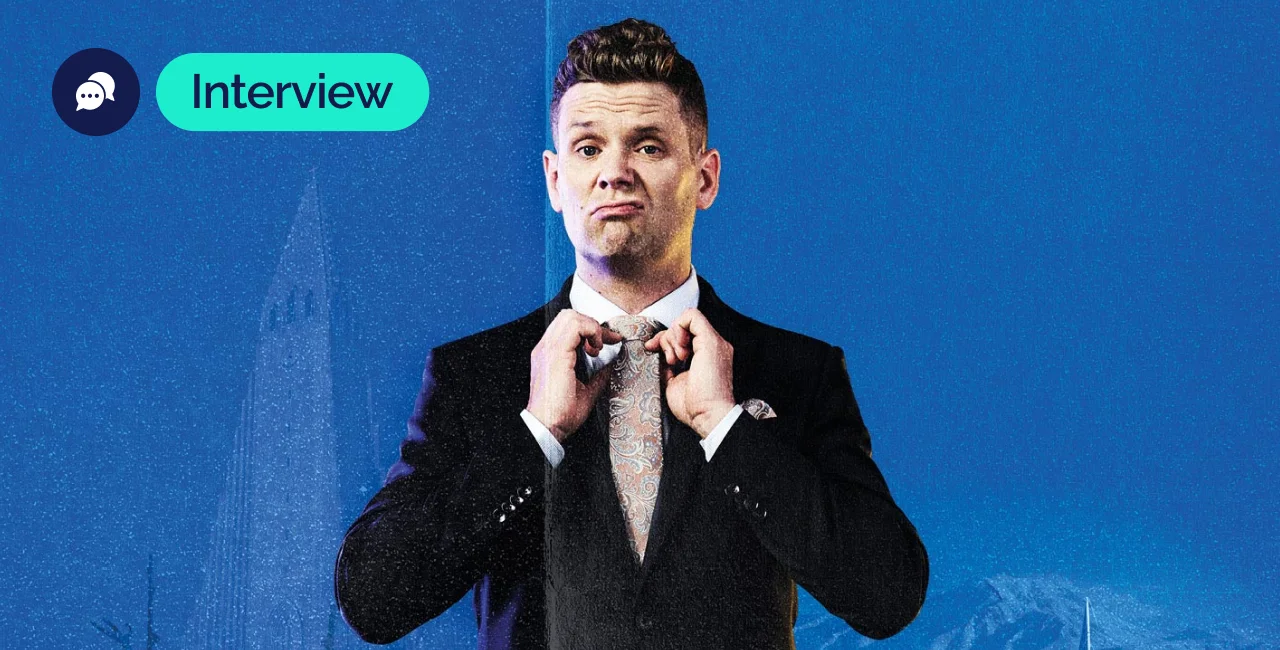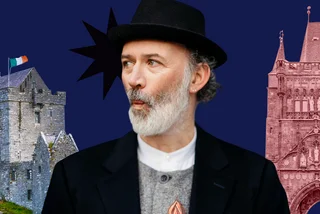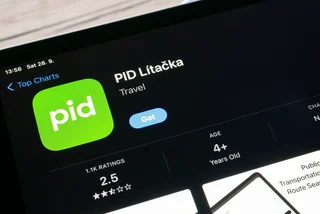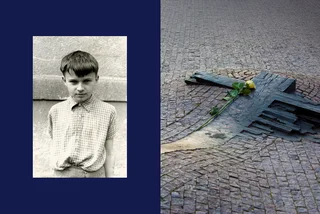Iceland’s first Netflix comedy star, Ari Eldjárn (of Pardon My Icelandic fame), will debut his latest show, From Iceland With Love, in Prague on May 7. Known for his razor-sharp impressions and deadpan takes on Nordic oddities, Ari has built a loyal fanbase far beyond Reykjavík—thanks to his uncanny ability to decode cultural quirks and turn them into comedy gold.
From British small talk to Scandinavian stoicism, he finds the funny in what sets us apart and what brings us together. But how will that all land with a Czech crowd?
Ahead of his Prague performance, we caught up with Ari to talk American sketch comedy, Iceland’s love affair with Czech animation, the glorious weirdness of dubbing—and how speaking multiple languages gives you a free pass to drop the occasional f-bomb.
This interview was edited for clarity and length.
You're bringing a show here for the first time, but have you been to Prague before?
Once, about eight years ago. It’s so beautiful. Reykjavík has almost no old buildings left. We basically demolished everything ourselves after World War II. The oldest house where I live is from 1790. Yeah, in Prague, the pizzeria I went to was from 1490. It wasn’t even listed as a historical landmark.
You do impressions, observational humor, and physical comedy. Who shaped your comedic style?
As a kid, Eddie Murphy was the biggest comic in the Nordic countries. His specials Delirious and Raw were huge here. They were the first stand-up specials most people saw. Later, I discovered Eddie Izzard; now, my manager is Eddie’s tour manager. It’s been awesome learning from him.
But honestly, my biggest influences were The Simpsons and Mad Magazine. I moved to England for a year when I was seven, and it made me fluent in English, which was rare for an Icelander back then. My dad found a bunch of old Mad Magazines in the attic, and I read them all. By nine, I knew who Spiro T. Agnew was!
Does The Simpsons get dubbed into Icelandic?
They dubbed one episode for fun, and I actually voiced Cletus in Icelandic. The translations were hilarious, too—my brother even tracked down the floppy disks from the original translator. It’s some hardcore nerd stuff.
You mentioned Eddie Murphy who was pretty raunchy, but your show is fairly clean. Does comedy need to shock to be funny?
People always complain, “You can’t joke about this anymore.” But it’s always been that way. Back in the ’90s, you couldn’t make fun of certain things, like the Pope. Remember when Sinéad O’Connor tore up his photo? Her career basically ended. Today, no one would care. It’s just a sign of the times.
What’s considered funny shifts. In the past, making fun of obese people was fine. Now, thankfully, it’s not. And the people who complain the most are usually the ones who don’t want to change.
Do you feel like you have to tiptoe around certain topics in your material?
It depends on the context. Live shows are different from what’s recorded for mainstream audiences. I’m mostly a “clean” comedian, though I’ll drop the occasional F-bomb—mainly because in Iceland, the F-word is just another expression, like “whatever.” Our curses are mostly about the devil—“By the devil!”—no “motherf***er” here.
Your material is very Eurocentric. Do you think it works outside Europe? Any jokes that just didn’t land?
By far, I have heard the biggest reactions from the Nordic countries, especially Denmark and Finland. It also really works in Australia—Australians really get it. The U.S.? Not so much, though. I haven’t performed there much, but I think American audiences are harder to crack. Most of the Americans who make it to my shows here are already very Eurocentric. They’re often the type who say, “Yeah, we’re from the States. We’re sorry, we’re sorry.”

You received your country’s Optimism Award for your work in the Icelandic language. Do you feel like comedy has a higher purpose beyond entertainment?
Sometimes I see my esteemed colleagues—the male podcaster versions of a comedian—and I hear them say things like, “We’re modern-day philosophers,” or “We’re speaking truth to power.” And I’m just like, what are you talking about? I want people to like me. I want to make people laugh. That’s my trip.
You’ve done acting a few times. Is that a goal of yours?
I’m more into impressions, honestly. I love comedians who are really good at doing impressions, especially if they incorporate them into solid stand-up material. An impression doesn’t have to be perfect. If the observation or the bit is good, that’s all that matters—it works together.
Is there a voice you can’t do, though? One that you’ve tried but just can’t quite nail?
John Lennon! It’s all over the place—nasal, up and down. It’s much easier than George Harrison’s voice, which is lazy, and Ringo’s always made you think he was a bit dumber than he really was. There’s a great impression that Dana Carvey did of him, talking to the ghost of John Lennon and explaining iPhones to him.
Do you plan to incorporate any local references or bits for the Czech audience?
Definitely, a comedian needs to engage with the audience, and I love local references. Iceland had an interesting connection to Eastern Europe during the Cold War. We traded with both the Soviets and the U.S. People in Prague were drinking Coca-Cola and driving Škodas. Also, Icelandic state TV showed a lot of cartoons from Eastern Europe, including Czech ones. Pat & Mat became a huge cultural reference in Iceland.
Ari Eldjárn: From Iceland With Love
Divadlo U Hasičů
Římská 45, Prague 2
May 7
7 p.m.
Buy tickets
You once said that translating your material from English felt like a “rebirth” of the jokes.
It’s exciting when you realize that a joke, which you thought was completely local, can be made international. It’s a fun challenge because most of my material is so intertwined with Icelandic phrasing. When I speak English, I tend to be less precise—more of an impression of an English speaker, which can lead to strange errors. Sometimes you don’t even notice them, but doing it on the fly is a mind-bending challenge. It’s almost like being an AI translator.
How many languages do you speak?
I’m fluent in English and semi-fluent in Danish. I can also understand and make myself understood in French, German, and Spanish. I think that’s five languages.
Nordic countries don't do a lot of dubbing, am I right?
Yeah, most children’s shows are dubbed, but for the most part, we use subtitles. I have a bit about the German dubbing system, actually. In Germany, you can become the voice of a Hollywood actor for life. I have a bit about Clint Eastwood’s voice dying in 1990, which is funny because Eastwood is still alive.
My daughter saw Paddington in Czech, and she said, “I’ve got to see it in English because all the voices sound the same."
We’ve had similar experiences. My daughter and her friends love the film Sing, and there’s a group of gorillas who are a gang. We always watch it in Icelandic because we know the guy who voices the gorillas. We watched it in English once and realized, “Oh, they’re Cockney!” That’s completely lost in the Icelandic version.
What accents and impressions will you wow us with in Prague?
The show I’m doing in Prague will be a strange mix of material from the past five years and a ton of new stuff created just for Prague. I'm genuinely excited about it, but honestly, I couldn’t tell you exactly what it’s going to be yet. There are just so many ideas bubbling up. This interview is actually getting me really pumped to go.












 Reading time: 6 minutes
Reading time: 6 minutes 



























